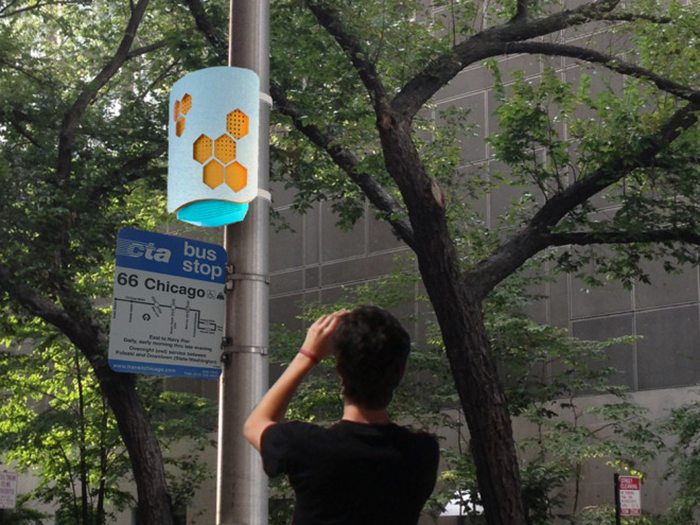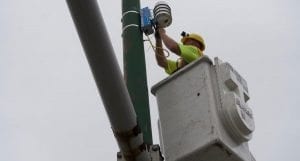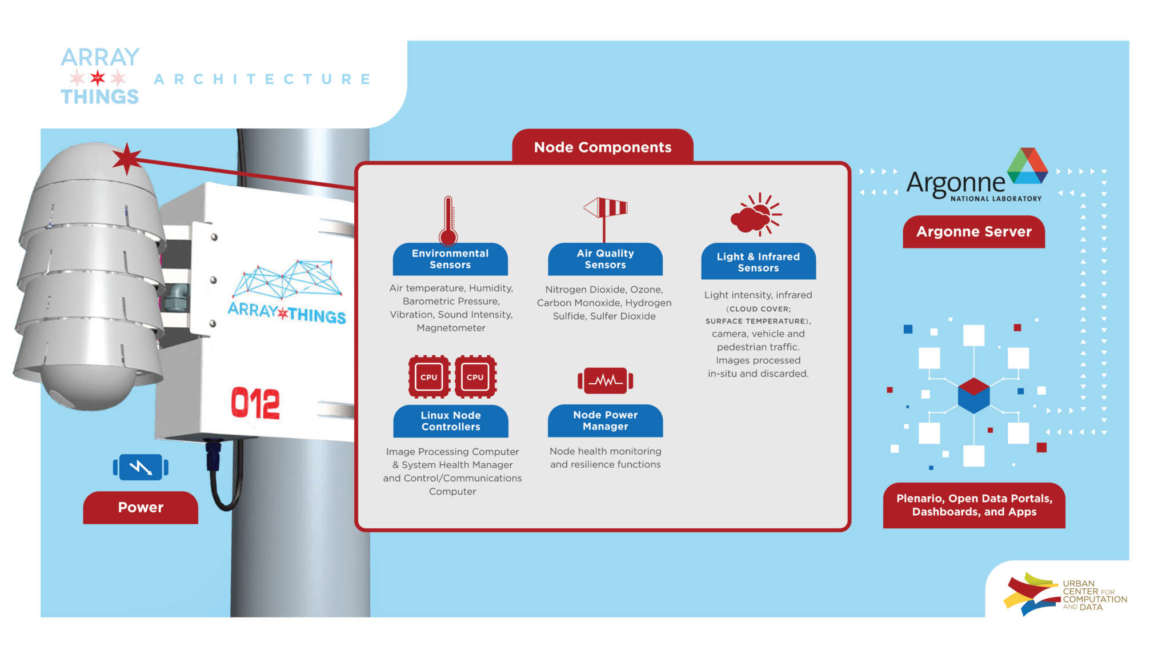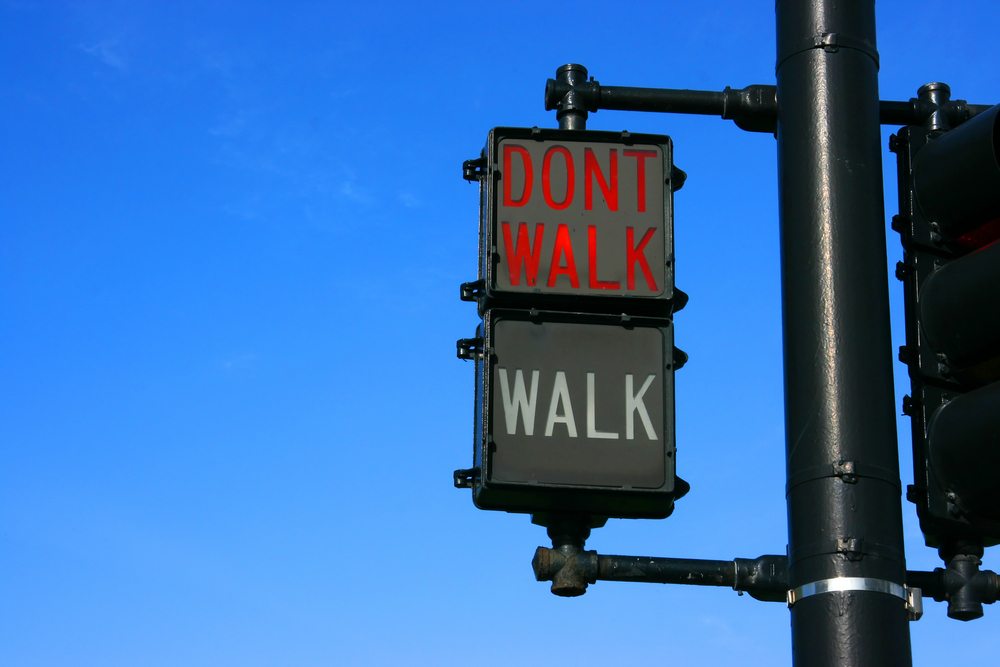Described as urban “fitness trackers,” new sensory boxes aim to improve quality of life

Stemming from a partnership between the City of Chicago and researchers at both the University of Chicago and Argonne National Laboratory, the city will soon have up to 500 large, sensory devices installed at light poles that will constantly measure its activity and atmosphere.
So far, two of the trackers have already been installed, and the information that they collect is pretty impressive. At multiple street corners, each device will record air quality and pressure, light concentration, sound levels, carbon monoxide, sulfur dioxide, and ozone levels, as well as traffic for both vehicles and pedestrians. By October, the measurements will be made available to the general public on the City of Chicago website.

A number of similar experiments have been attempted in other cities and most have failed. These “fitness trackers” in Chicago are serving as a prototype, with plans of expansion to other cities including Atlanta and Seattle in the works. Aside from more efficient urban planning that’s expected from these developments, residents will also see benefits from them in their day-to-day lives. Commuters will have more insight into planning their routes, residents looking for a quiet area can avoid noisy parts of town and families with sick children can avoid areas with poor air. Additionally, the boxes work in ongoing efforts to reduce traffic fatalities and to build a ‘cleaner’ city.
Cameras built in the sensory boxes will collect images of the sky, surrounding bodies of water, and of traffic density. Although there has been some initial ‘Big-Brother’-related concern about privacy, the developers have reported that all images will only exist long enough for necessary atmospheric information to be recorded, after which they will be deleted within minutes. The priority is to collect data about the city and not about individuals.
By the end of 2016, 50 more boxes will be installed throughout Chicago, and a total of 500 will be active by 2018. If the model is successful in Chicago, it will be rolled out to multiple cities across the nation as part of a widespread effort to make our cities more livable.



